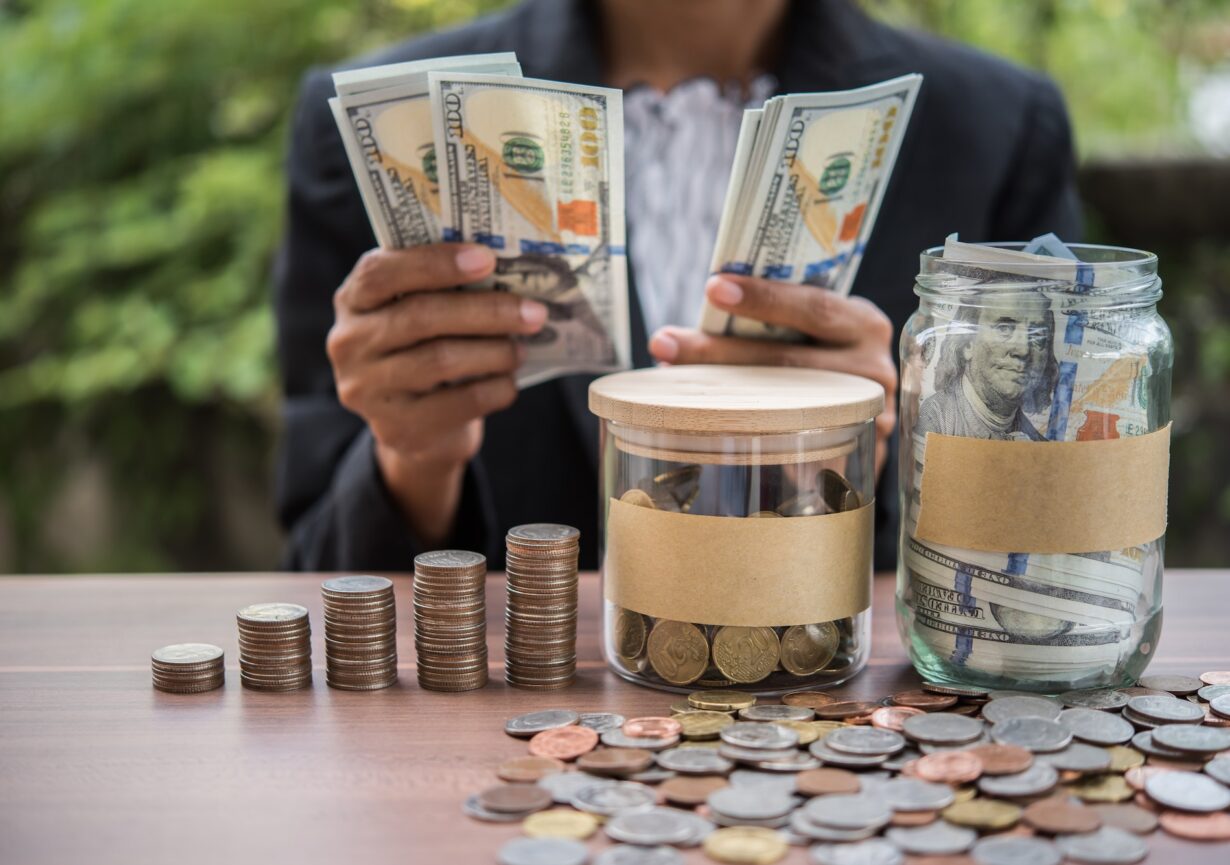Why would anybody think of saving money and buying with cash when credit is so easy to come by? If you need anything, you take out your credit card and pay it back in installments over an unknown period. Everyone does it if they can afford the monthly payments; what’s the big deal? The terrible problem is that this way of thinking is becoming increasingly popular. Below are ten reasons to put money aside:
1. Obtain financial independence
Learn how to budget and save money. Depending on who you ask, various people have varied definitions of wealth. To most people, however, “being affluent or wealthy” means having financial freedom and savings on which to rely. Financially, calling your shots implies having the ability to make decisions in your life apart from receiving a paycheck.
This could mean being able to take vacations whenever you want. You could quit your job and return to school to change careers, start your own business, or invest in someone else’s. You could assist family members, take a lower-pay. Or, more importantly, these days, retiring when you want rather than working because you have to.
2. Don’t overuse your credit card
If you regularly charge all of your purchases on your credit card and then don’t pay off your credit cards in full every month. You’re likely paying at least 50% more for everything you buy due to interest costs. If you rely on credit cards to fund your lifestyle, stop your costly credit habit by planning ahead of time for your purchases.
You can buy products on sale and take a bit of time to make wiser shopping decisions with savings. People who have a lot of money can stockpile groceries when they go on sale. According to one author, those who do this save 24% on their grocery price by skipping one supermarket shop every month.
3. Purchase a home
You won’t be able to borrow money to buy your house unless you have a deposit for a house. Unfortunately, you won’t be able to borrow this down payment. You must either have this money saved up or have it given to you—not lent to you. A down payment of at least 5% of the home’s purchase price is required before the bank will consider financing you the remaining 95%. There is a slew of other fees and levies to consider when buying property. You’ll need an extra 5% to cover those expenses. Savings is what will allow you to purchase a property.
4. Purchase a Vehicle
When you need to buy a new car, you’ll need a down payment to qualify for a car loan with a fair interest rate. Of course, you could “borrow” the money from your credit card. But at a rate of 20% or more, how is that going to help you get ahead? Because zero% financing is only available to the most deserving consumers, a car loan will undoubtedly cost you something. It could be a lot. The greatest thing you can do is save as much as possible for a down payment and weigh your options. Perhaps buying a good used car rather than a new one is the best way to get the car you desire.
5. Pay Off Your Debts
You must have some money saved if you ever want to get out of debt. Doesn’t it sound ironic? On the other hand, credit cards will never be paid off if you keep using them for an “emergency” that arises. Even if you’re a master planner, statistics suggest that half of us have at least one unforeseen expense each Year.
As a result, you should set aside $500 to $1,000 as a reserve fund before you begin paying off credit cards. You can pay for them from your reserve fund when unexpected expenses arise rather than using your credit cards. Maintaining “reserve money” will also assist you in recognizing when your spending is out of control.
6. Expenses for the Year
You must save for annual costs if you want a pleasant, reasonably stress-free financial life. Money for presents, holidays, vehicle upkeep, minor home repairs, appliance repairs, property taxes, and possibly income tax are examples of these. The easiest way to deal with these kinds of charges is to plan ahead. Not only will you save money, but you will also have peace of mind.
7. Unforeseen Expenses
What will you do if your vehicle requires extensive repairs? Do you have somewhere between $500 and $3,000 on hand? What if your home needs repairs or you find that you are residing in a leaky structure? You can’t always rely on the bank to give you money for these purposes. It is far preferable to plan for the worst-case scenario and have some funds set aside.
8. Emergencies
We all know that emergencies happen; no matter how much we pray, they don’t. A family member may become ill. You may need to make an emergency trip, or you may be involved in a car accident or breakdown. There could be extreme weather that floods your basement or cracks your pipes. You may be required to travel to a loved one’s funeral. Any of these crises can be costly, and we all know that we will undoubtedly face one at some point in our lives. So, rather than becoming another victim of an emergency, why not be prepared? There are one or two reasons why you should save money.
9. You may lose your job or be injured
You could lose your job, or you could be hurt physically or mentally, or you could become too ill to work. You could be subjected to any of these scenarios. Employment Insurance (EI) does not begin to pay benefits until you have been out of work for six weeks. Will you be living on credit, or do you have enough savings to tide you over? In a circumstance like this, living on credit can quickly exacerbate a terrible position. Minimum payments rise until they become unaffordable, and credit limits are no longer budgeable. Then, once you acquire some money, what used to be plenty no longer suffices. You now have all these new loan obligations to make each month. So you’ll need more money today than you did before. You’ll have to pay down your debts and eventually work to pay them off.
10. To Live a Happy Life
Living from hand to mouth from paycheque to paycheque has severe emotional, psychological, and bodily implications. People who do not plan for their future appear to be in a constant state of “crisis.” Being orderly can provide happiness, according to a little-known truth. Being organized won’t make you happy on its own, but it can certainly help. There is so much in your future you have no control of. Putting money away to spend when you need it is essentially arranging and taking charge of your future and financial concerns. By saving, you have nothing to lose and only a brighter future to gain.
Conclusion
Begin today by putting aside a small amount of money from each paycheck until you have a $500 to $1,000 emergency fund. If you earn a bonus at work or a tax refund, use it to get started. Supplement what you already have set aside. Build up your cash when life happens, and you need to tap into it. It takes some effort, but it’s a habit worth developing.


